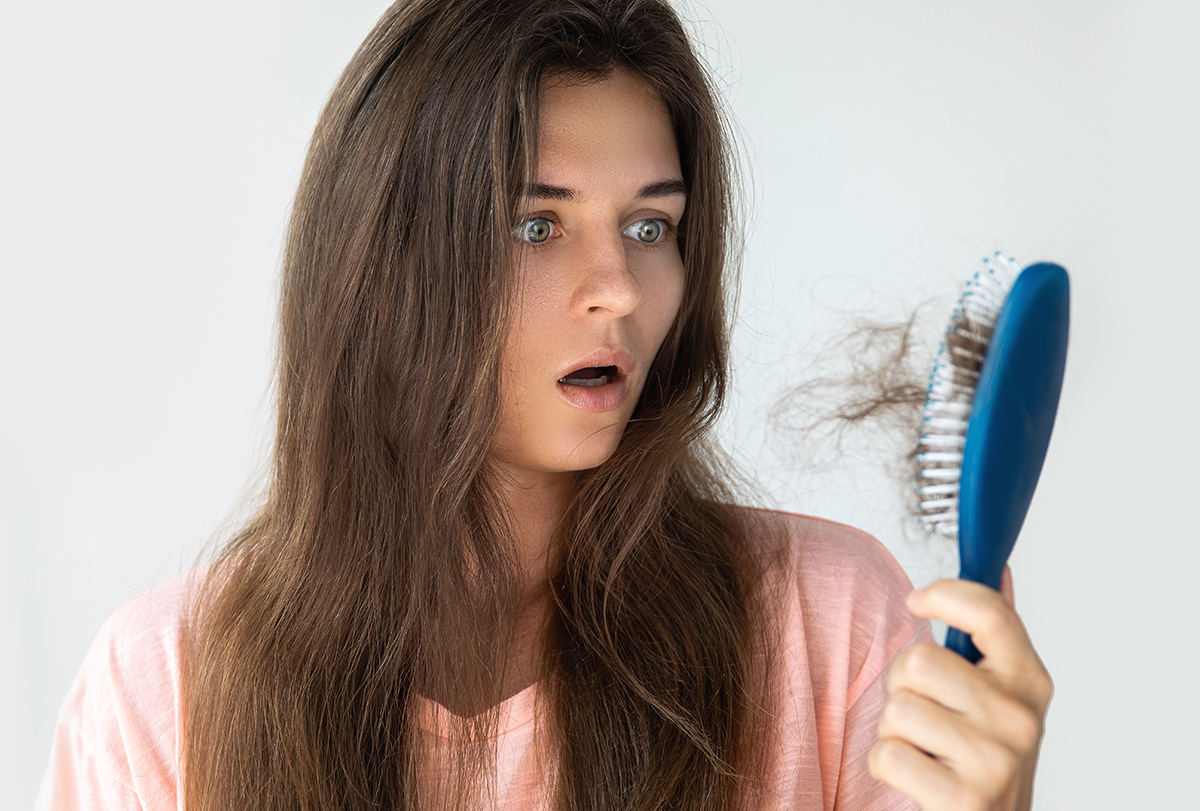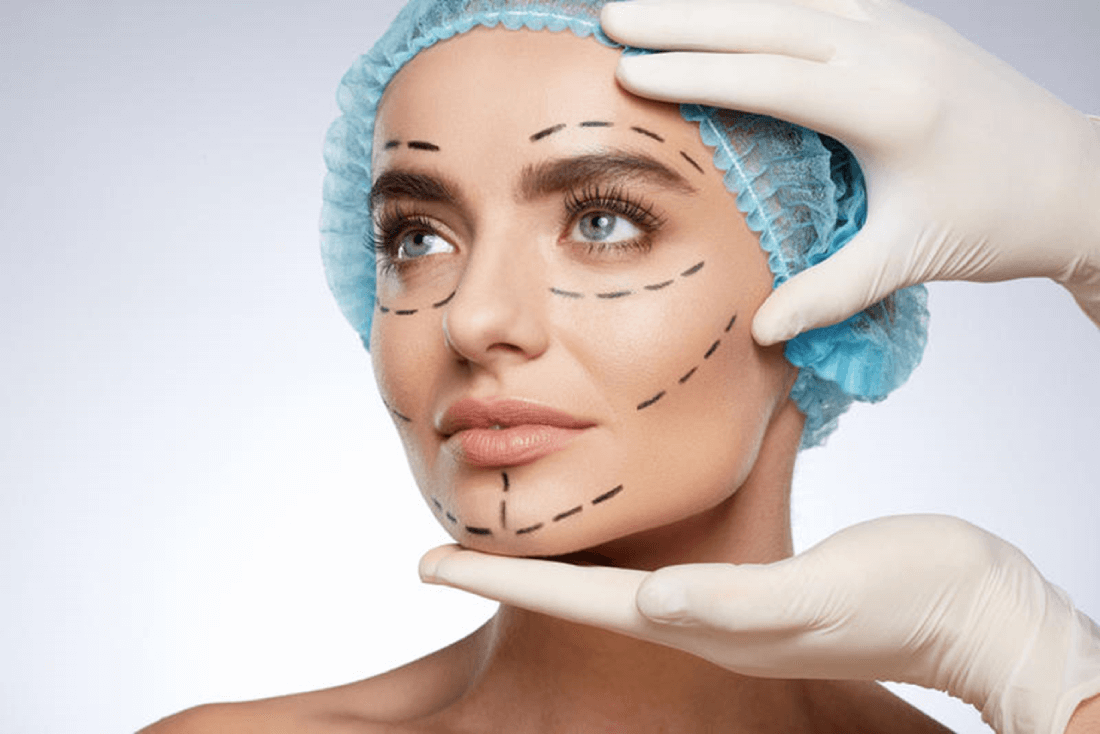Stress is a common factor that significantly contributes to hair fall. The relationship between stress and hair loss is complex and can manifest in various ways. Understanding how stress affects hair growth and learning effective management strategies is crucial for those experiencing stress-induced hair loss. Consulting the Best Doctor for Hair Fall Treatment in Noida can also provide personalised solutions and advanced treatments.
Understanding Stress-Induced Hair Fall
1. Telogen Effluvium
Telogen effluvium is a condition in which significant stress pushes large hair follicles into a resting phase. Within a few months, affected hair may suddenly fall out when combing or washing it.
- Causes: Severe emotional stress, major surgery, chronic illness, or significant life changes can trigger this condition.
- Symptoms: Sudden and noticeable hair thinning, especially on the top of the scalp.
Key Points:
- Triggered by severe stress
- Sudden hair thinning
- Often temporary but can be prolonged by ongoing stress
2. Alopecia Areata
Alopecia areata is an autoimmune disorder where the body’s immune system attacks hair follicles, leading to hair loss. Stress is believed to trigger or exacerbate this condition.
- Causes: High-stress levels can activate immune responses that attack hair follicles.
- Symptoms: Sudden patchy hair loss, creating round or oval bald spots.
Key Points:
- The autoimmune response triggered by stress
- Patchy hair loss
- It can affect the scalp and other body areas
3. Trichotillomania
Trichotillomania is a psychological condition where individuals compulsively pull out their hair due to stress or anxiety. This leads to noticeable hair loss and can cause significant psychological distress.
- Causes: Stress, anxiety, and other emotional disorders.
- Symptoms: Irresistible urge to pull out hair, resulting in bald patches.
Key Points:
- Compulsive hair-pulling due to stress
- This leads to noticeable bald spots
- Requires psychological intervention
How Stress Affects Hair Growth
1. Hair Growth Cycle Disruption
Stress can disrupt the natural hair growth cycle, particularly affecting the transition from the anagen (growth) phase to the telogen (resting) phase. This disruption leads to premature hair shedding.
Key Points:
- Stress accelerates the transition to the resting phase
- Causes increased hair shedding
- This can result in noticeable hair thinning
2. Hormonal Changes
Stress triggers hormonal changes in the body, including the release of cortisol. Elevated cortisol levels can interfere with the function of hair follicles, leading to hair loss.
Key Points:
- Increased cortisol levels due to stress
- Affects hair follicle function
- Can result in hair loss
3. Nutrient Deficiency
Chronic stress can impact nutrient absorption and overall health. Poor nutrition affects hair health, as hair requires adequate vitamins and minerals to grow and remain strong.
Key Points:
- Stress impacts nutrient absorption
- Poor nutrition weakens hair
- Can exacerbate hair loss
Managing Stress-Induced Hair Fall
1. Stress Management Techniques
Learning to manage stress effectively is crucial in reducing stress-induced hair fall. Techniques such as mindfulness, meditation, yoga, and regular exercise can significantly lower stress levels.
Key Points:
- Mindfulness and meditation reduce stress
- Yoga and exercise promote relaxation
- Consistent practice improves overall well-being
2. Healthy Diet
Maintaining a balanced diet rich in vitamins and minerals supports overall hair health. Essential nutrients for hair growth include vitamins A, C, D, E, zinc, iron, and omega-3 fatty acids.
Key Points:
- A balanced diet supports hair health
- Essential nutrients for hair growth
- Helps mitigate stress-related hair loss
3. Proper Hair Care
Taking good care of your hair can minimise damage and promote healthy growth. Avoid harsh treatments, use gentle hair care products, and protect your hair from environmental damage.
Key Points:
- Gentle hair care reduces damage
- Avoid harsh treatments and chemicals
- Protect hair from environmental stressors
4. Seeking Professional Help
Consulting with the Best Doctor for Hair Fall Treatment in Noida can provide advanced solutions and personalised care plans. Professionals can offer treatments such as PRP therapy, medications, and other innovative solutions to manage hair fall effectively.
Key Points:
- Professional consultation for personalised care
- Advanced treatments like PRP therapy
- Effective management of hair fall
Conclusion
Stress-induced hair fall can be a significant concern, but understanding its mechanisms and implementing effective management strategies can mitigate its effects. Learning stress management techniques, maintaining a healthy diet, and practising proper hair care are essential. Additionally, consulting the Best Doctor for Hair Fall Treatment in Noida can provide expert advice and advanced treatments, ensuring a comprehensive approach to managing hair loss and promoting healthy hair growth.



